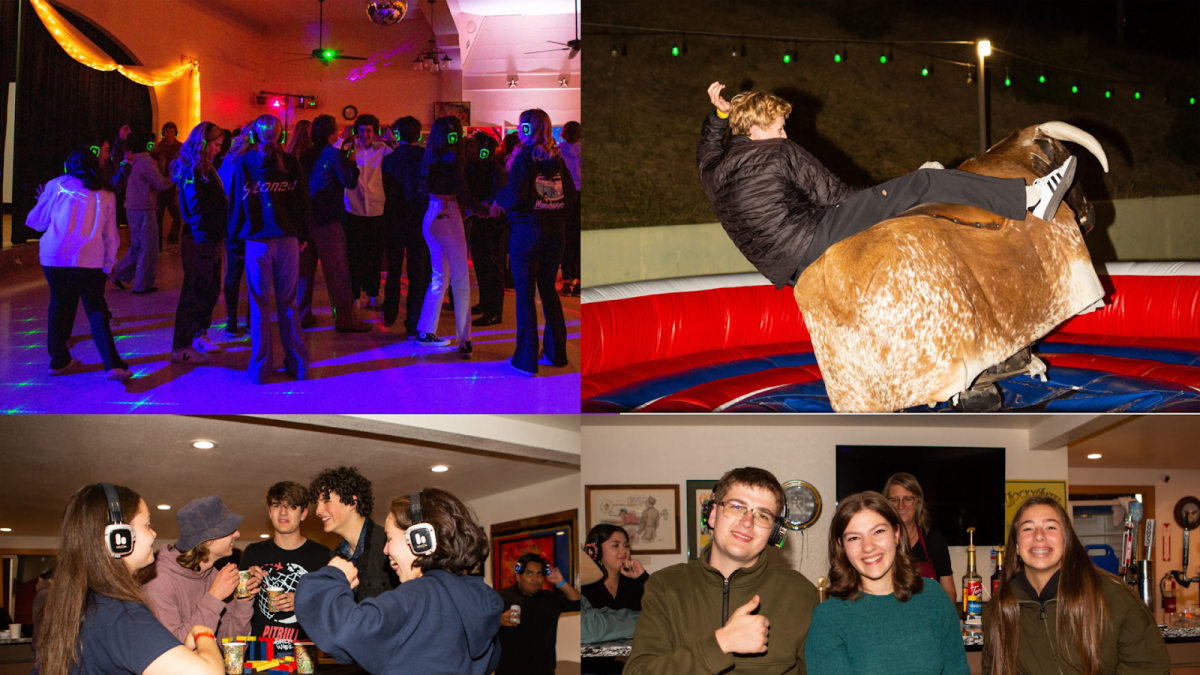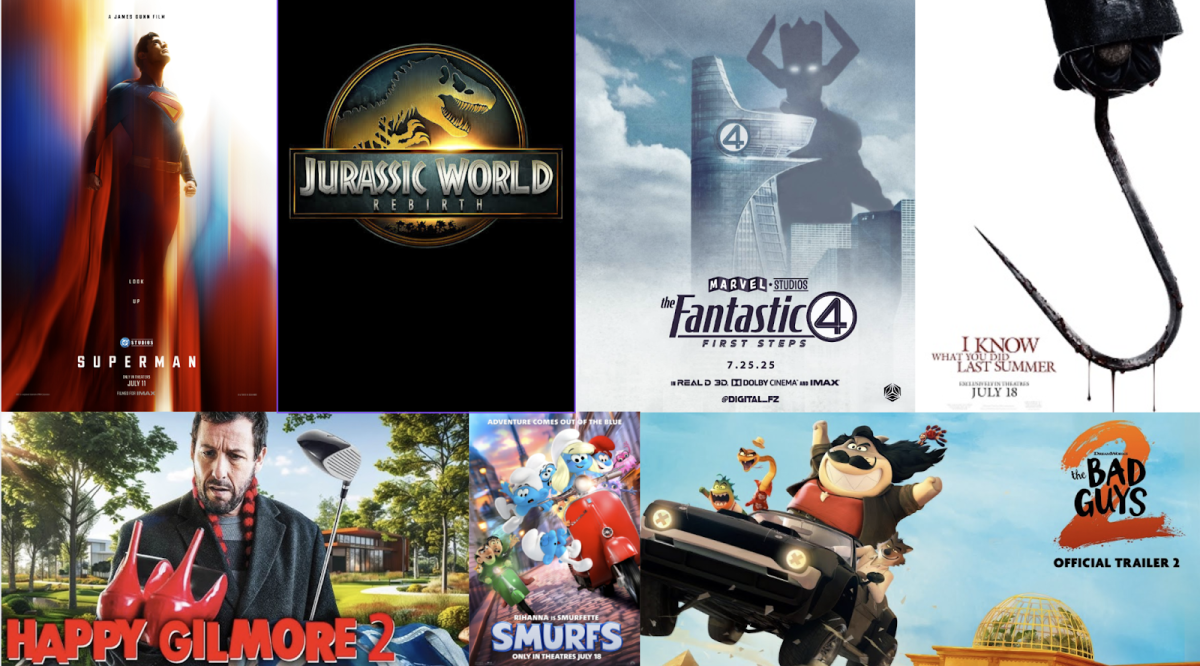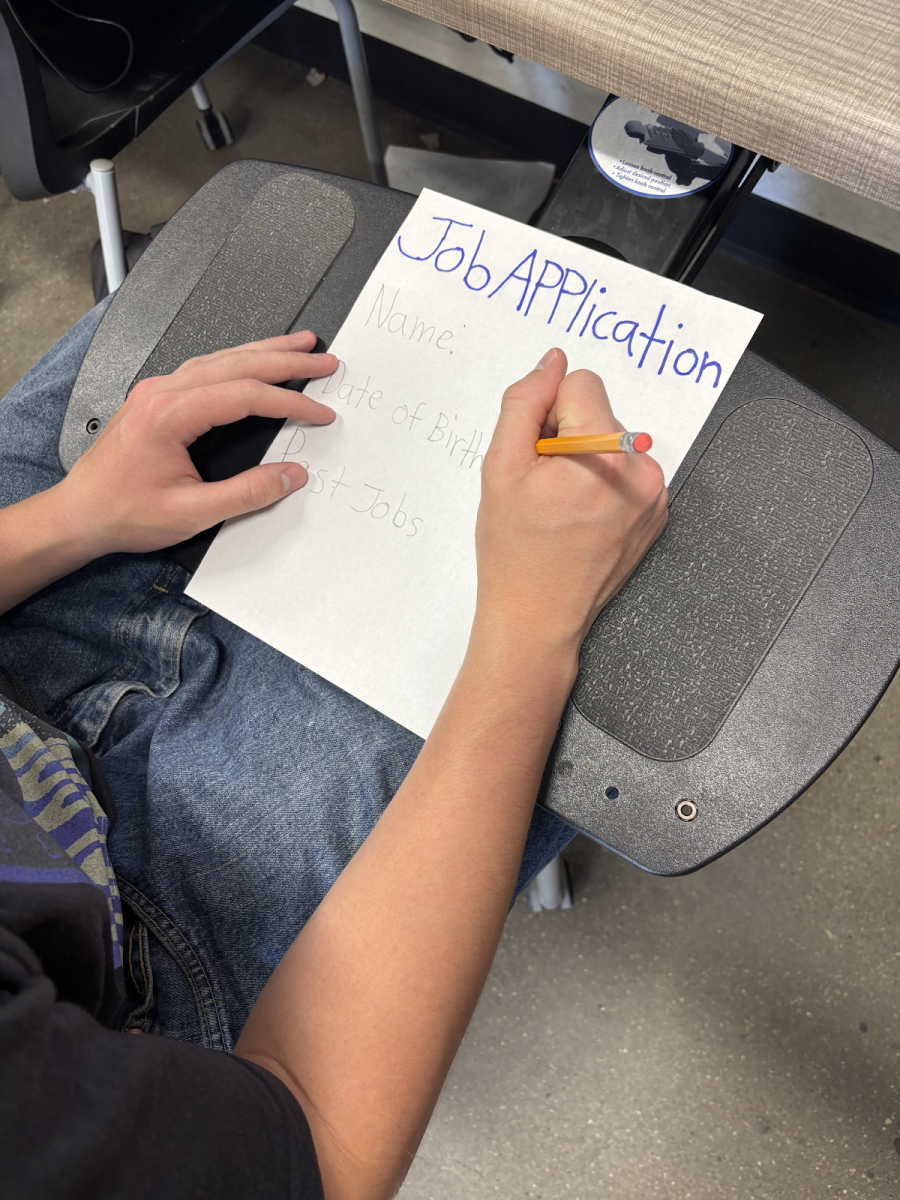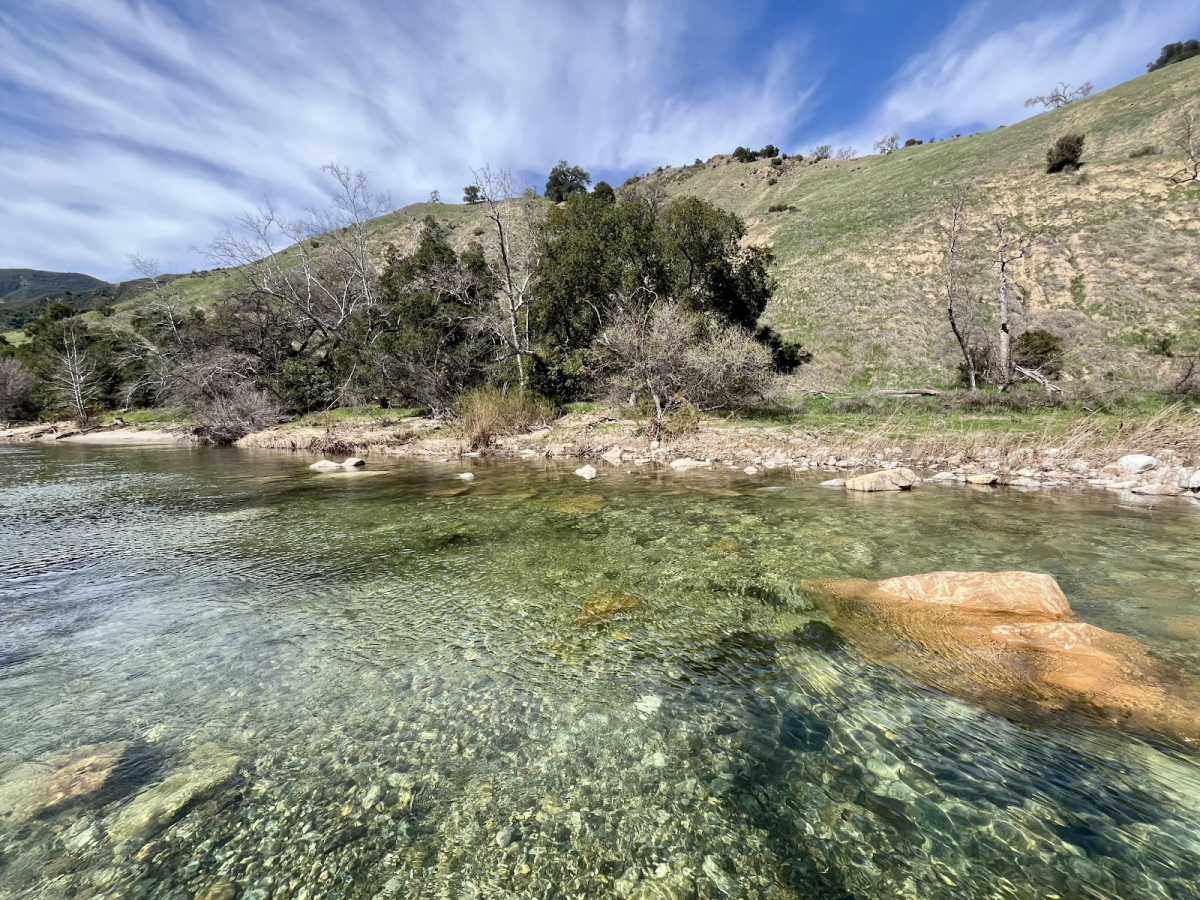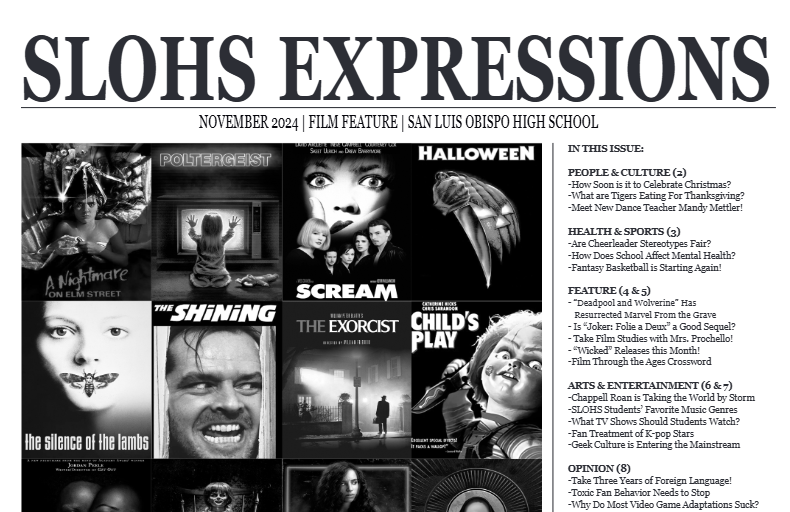Editor Glen Starkey sat down for a great talk with the SLOHS Expressions staff. Photo courtesy of SLOHS Expressions adviser Scott Nairne.
Journalist and local sage Glen Starkey came and talked to Expressions about his writing and teaching experience. He had a lot of advice to those at San Luis Obispo High School interested in pursuing a journalistic field.
Expressions: What does your job as an Arts and Entertainment editor and reporter entail?
Starkey: What I’m writing about most of the time is music, and movies, which are both things that most people like I think, but as far as writing about music goes, it sort of feeds itself. You know, there’s all these clubs around town that are booking bands. I just talked about the bands, the genres of music they play. If I’ve seen them before, I can talk about what you can expect. Sometimes if they have new songs out or something, I’ll do reviews of the songs. And then movies I do a review column with my wife called split screen.The idea is that we both go and see the same movie and then we both take turns writing about what we thought about it. So it’s kind of a back and forth. So like this week we went to the equalizer three, that’s in the paper.
Expressions: When you’re doing split screen what’s the writing process?
Starkey: I’ll do a template before we get started. So I’ll have already done the research on what the film is written up in, like a synopsis of what it is and so then I usually go first. And I’ll just write my initial thoughts and then my wife will take over and she’ll write her thoughts and then I’ll respond to her thoughts and then she’ll respond to my thoughts. And so back and forth, and that usually happens just like four times, we each go twice. A lot of times we’ll get out of the movie, we’ll talk about it. And we usually wait 24 hours before we write it, because a lot of times sleeping on it kind of helps you formulate your thoughts and get a better idea of what you want to talk about. So we write a review and try to tell them whether we thought it was good or not and what they can expect without trying to give away too much.
Expressions: What have you written outside of the Arts and Entertainment page?
Starkey: I’ve been [at New Times] for 32 years, it will be 33 in January. So I’ve written all kinds of stuff. I wrote a cover story about the heroin addiction problem in SLO County and that was kind of before the opioid crisis. And I wrote about it because an artist friend of mine died of a heroin overdose. From some drugs she got from somebody up in Atascadero, she started to overdose. They tried to fill a tub with ice water and put her in there to see if they could shock her on it but it didn’t work and she died. And he ended up basically being held responsible for her death. And so that was what got me started on the story. And I interviewed people who are foreign or former heroin addicts.. I wrote about like, violence in the local surf culture was all kind of from a fight that happened down in Shell Beach between two guys who were surfing and one cut the other one off and they ended up going to blows. I wrote a story about the surveillance state. I don’t know if you’ve noticed cameras are everywhere nowadays.
Expressions: Do you remember when the New Times did the article about how to cook meth (it was actually much more than that?
Starkey: I was there for that. I didn’t write it. We got in big trouble for that one. The thing that was weird is like everything that we published for how to make meth was available online. And the reason we did it was because there was a meth lab that was found in a trailer. And so we were like looking into the whole problem with methamphetamines in the county and cooking it and trailers blowing up and that sort of thing. So we published, we thought, a kind of tongue in cheek [article], but the public took it pretty badly. A lot of people were very upset and said they never read the paper again.
Expressions: How much time do you put in and how much do you get paid?
Starkey: I started as a freelancer. So I was writing a music column once a week, and I think I was getting paid thirty dollars a week or something like that. I’ve been there for so long. I eventually got hired on but I’ve always been part time. So I work basically from about eight till noon, Monday through Thursday. So it’s about 16 hours a week. And I end up doing stuff on the weekends, watching movies or doing that kind of thing. They have me down for thirty hours a week, but I probably put in about twenty. I get paid thirty grand a year from that. I also teach at Cal Poly in the English department. That’s the bulk of my income. Don’t go into journalism thinking you’re gonna get rich, because you’re not.
Expressions: Do you get writer’s block and do you believe in writer’s block?
Starkey: I don’t get it. I don’t believe in it. I’ll tell you why. You can write. Whether you’re inspired or not, doesn’t matter, but you can still write. You got to sit down and just think about it and try to figure it out. Even if you’re gonna be totally discarded later it’s better than just doing nothing.
Expressions: After you graduated from Cal Poly what jobs did you do to end up where you are today?
Starkey: I was writing and I was managing a nightclub at the time when the [New Times] editor came in, we’d have drinks at the nightclub and they would talk to me about how they needed somebody to write a music column. So that’s how I got started basically, but after working for about six years on the newspaper and then continuing to do side jobs, I went back and got my master’s degree. And then as soon as I graduated, Cal Poly immediately hired me and I’ve been teaching there ever since. I’m kind of a two job guy.
Expressions: Can you make a living out of Journalism and being on a Newspaper staff?
Starkey: I feel like it’s a really good, part time job. If you have a passion to write it is good supplemental income. It’s hard to make a living from it. I don’t know exactly how much our editor makes. She works full time, and I’m thinking it’s probably about seventy thousand a year. That’s not huge money, especially these days.
Expressions: Do you have any advice for people who want to write?
Starkey: If you’re interested in things, you’re willing to listen to people’s stories, you can be a great journalist. You need to be intellectually curious. That may not be advice and maybe a trade that some people have, and some people don’t. If you care about things and you want to find out about people’s stories, that’s the key to being a good journalist.
Expressions: How do you decide what to write, does someone choose for you?
Starkey: Our newspaper practice is something that’s called enterprise journalism. So unlike a lot of newspapers, where you’re assigned something that you’re going to write about. All the journalists that work at New Times are enterprise journalists, which means we have to come up with our own stories. So you know, there might be certain beats that people are on like, we’ve got a reporter who covers Cal Poly, but you have to come up with the stories yourself. What do people want to know about? I mean, most of the time, I get great leads by listening to people, and they don’t even think they’re telling me any leads or stories.
Go check out some of Starkey’s work at NewTimesslo.com.



